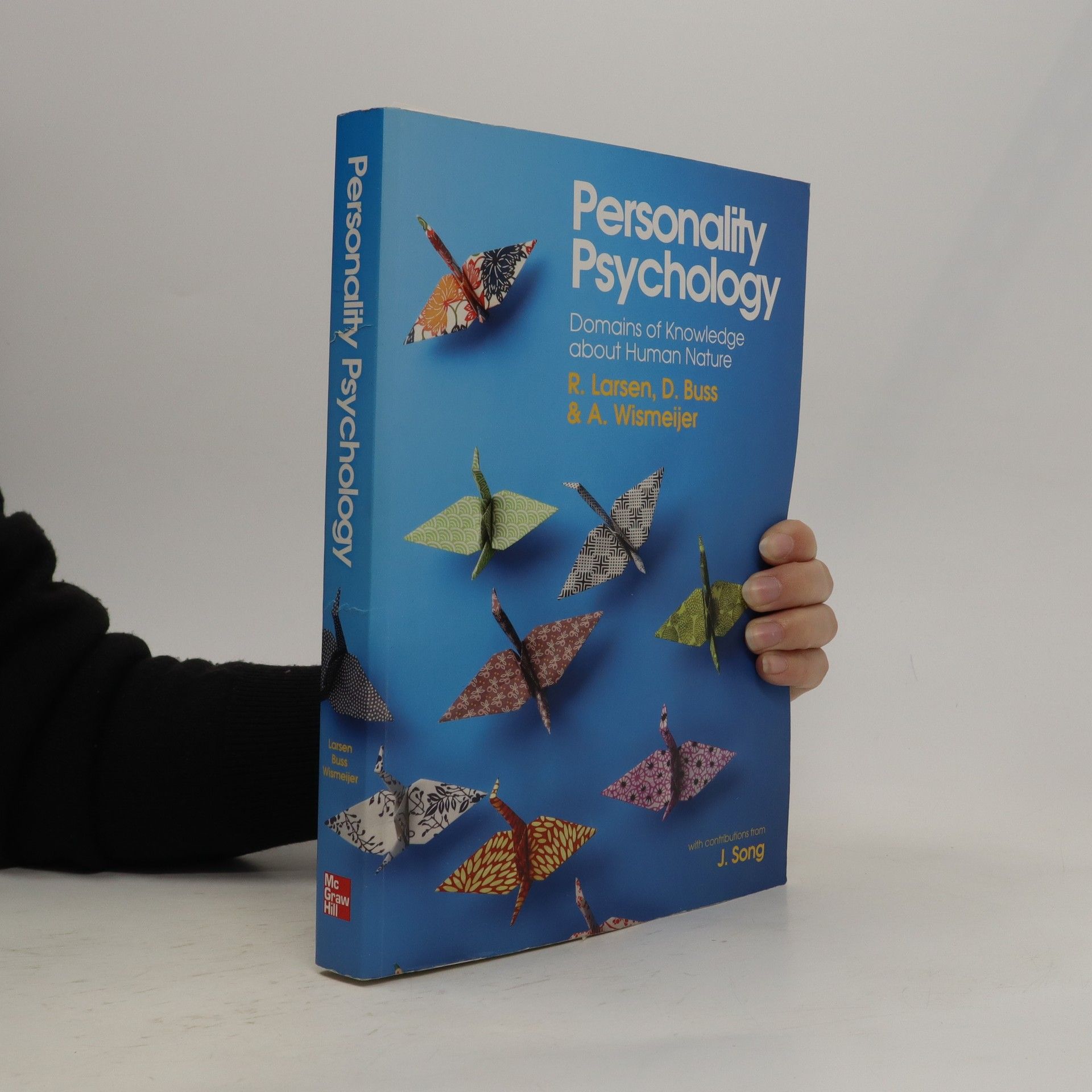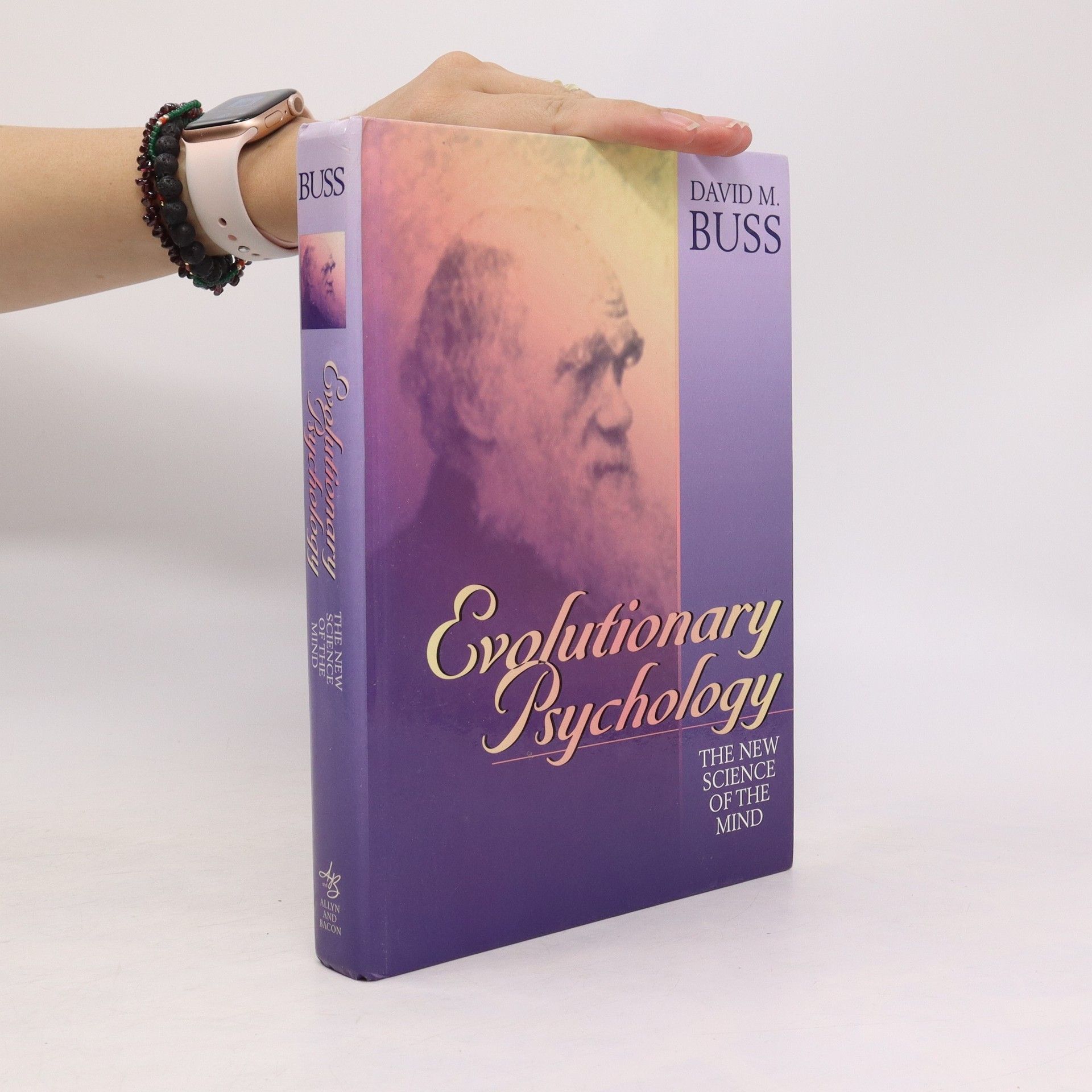Viele von uns sehen in Mördern krankhafte Außenseiter oder abgebrühte Kriminelle. Doch der renommierte Evolutionspsychologe David Buss hat beunruhigende Neuigkeiten: Die meisten Morde werden von ganz normalen Menschen begangen. Und der Impuls zu töten stellt keineswegs eine Anomalie dar - er ist vielmehr evolutionär im menschlichen Gehirn verankert und wartet nur auf Auslöser, die uns erstaunlich vertraut sind. „Der Mörder in uns“ fußt auf einem jahrelangen Studium von Kriminalarchiven und auf Untersuchungen in der ganzen Welt. Es ist gespickt mit fesselnden, oft erschütternden Berichten über typische Mordfälle und gewährt schockierende und erhellende Einsichten in die Untiefen der menschlichen Seele. Das faszinierende Buch stellt letztlich unser aller Selbstbild radikal infrage.
David Buss Bücher
David M. Buss erforscht menschliches Verhalten durch eine evolutionäre Brille und konzentriert sich dabei auf Paarungsstrategien und die Dynamik von Geschlechterunterschieden. Seine Arbeit beleuchtet die grundlegenden Motivationen und psychologischen Mechanismen, die unsere sozialen Interaktionen und Wünsche prägen. Buss taucht tief in die Komplexität der menschlichen Natur ein und bietet eine umfassende Perspektive darauf, warum wir uns so verhalten, wie wir es tun, insbesondere in Bezug auf Fortpflanzung und sozialen Status. Sein Ansatz deckt die tiefen evolutionären Wurzeln unserer Emotionen und Handlungen auf.







Personality Psychology
Domains of Knowledge About Human Nature
Personality shapes our identities and affects every facet of our lives, influencing interactions and responses to stress. This third edition of Personality Psychology employs a unique framework to delve into six essential domains: Dispositional, Biological, Intrapsychic, Cognitive/Experiential, Social/Cultural, and Adjustment. It emphasizes the scientific foundation of contemporary understanding, integrating current research with classic perspectives. Key updates include a revised chapter on Culture and Personality that reviews international research, a comprehensive section on Personality Disorders aligned with the DSM-5, and new pedagogical tools like 'Application boxes' for real-world applications of theories. 'A Closer Look' sections deepen engagement with core topics and influential studies, while updated exercises promote critical reflection and personal application of theory. The text also features a revamped chapter on Psychoanalytic Approaches, covering historical views and expanding on Object Relations Theory and Ego Psychology. Connect® Psychology enhances the learning experience by providing students with online access to assignments and immediate feedback, while offering lecturers tools for auto-graded assessments and progress monitoring. The authors include esteemed professors and researchers in psychology, each contributing their expertise to enrich the study of personality. The comprehensive table of cont
"Wo warst du?"
- 352 Seiten
- 13 Lesestunden
Leading evolutionary psychologist David M. Buss provides a unified new theory of sexual conflict and shows how its battles play out in the barroom, the bedroom and the boardroom.
Using a unique organizational framework that emphasizes six domains of knowledge about human nature, Personality Psychology presents an accessible, contemporary look at personality as a collection of interrelated topics and themes. The book focuses on the scientific basis of our knowledge about human nature, supported by research and theory. This adaptation of the successful US text retains the book's strengths while introducing contemporary theories of personality and topics and examples that are key to European readers. Key features New chapter on intelligence Increased coverage of contemporary theories of personality Classic and contemporary international research Inclusion of cognitive topics in personality Boxed features that help you examine the details of a study or concept, apply your knowledge to the real world, and test your understanding through application
Sexual conflict permeates ancient religions, from injunctions about thy neighbor's wife to the sexual obligations of marriage. It is etched in written laws that dictate who can and cannot have sex with whom. Its manifestations shape our sexual morality, evoking approving accolades or contemptuous condemnation. It produces sexual double standards that flourish even in the most sexually egalitarian cultures on earth. And although every person alive struggles with sexual conflict, most of us see only the tip of the dating deception, a politician's unsavory grab, the slow crumbling of a once-happy marriage, a romantic breakup that turns nasty.Bad Men shows that this "battle of the sexes" is deeper and far more pervasive than anyone has recognized, revealing the hidden roots of sexual conflict -- roots that originated over deep evolutionary time -- which characterise our sexual psychology. Providing novel insights into our minds and behaviours, Bad Men presents a unifying new theory of sexual conflict and offers practical advice for men and women seeking to avoid it.
* Do women have sex simply to reproduce or display their affection?When clinical psychologist Cindy Meston and evolutionary psychologist David Buss joined forces to investigate the underlying sexual motivations of women, what they found astonished them. * Through the voices of real women, Meston and Buss reveal the motivations that guide women's sexual decisionsand explain the deep-seated psychology and biology that often unwittingly drive women's desires sometimes in pursuit of health or pleasure, or sometimes for darker, disturbing reasons that a woman may not fully recognize. * Drawing on more than a thousand intensive interviewsconducted solely for the book, as well as their pioneering research on physiological response and evolutionary emotions,Why Women Have Sexuncovers an amazingly complex and nuanced portrait of female sexuality. They delve into the use of sex as a defensive tactic against a mate's infidelity(protection),as a ploy to boost self-confidence(status),as a barter for gifts or household chores(resource acquisition), or as a cure for a migraine headache(medication). * Why Women Have Sexstands as the richest and deepest psychological understandingof female sexuality yet achieved and promises to inform every woman's (and her partner's) awareness of her relationship to sex and her sexuality.
Evolutionary Psychology
- 456 Seiten
- 16 Lesestunden
Composed of cutting-edge reasearch and featuring an engaging writing style, the author offers compelling scientific answers to the profound human questions regarding love and work. Beginning with a historial introduction, the text logically progresses by discussing adaptive problems humans face and ends with a chapter showing how the new field of evolutionary psychology encompasses all branches of psychology. Each chapter is alive with the subjects that most occupy our minds: sex, mating, getting along, getting ahead, friends, enemies, and social hierarchies. Why is child abuse 40 times more prevalent among step-families than biologically intact families? Why, according to one study, did 75% of men but 0% of women consent to have sex with a complete stranger? Buss explores these intriguing quandaries with his vision of psychology in the new millenium as a new science of the mind. Anyone with an interest in the biological facets of human psychology will find this a fascinating read.
Focusing on the multifaceted nature of human personality, this edition presents a framework based on six domains of knowledge rather than traditional grand theories. These domains—dispositional, biological, intrapsychic, cognitive-experiential, societal and cultural, and adjustment—organize key theories effectively. The text emphasizes the significant roles of culture, gender, and biology, reflecting recent advancements in personality scholarship. This unique approach captures the excitement and complexity of personality psychology, making it a valuable resource for students and scholars alike.


